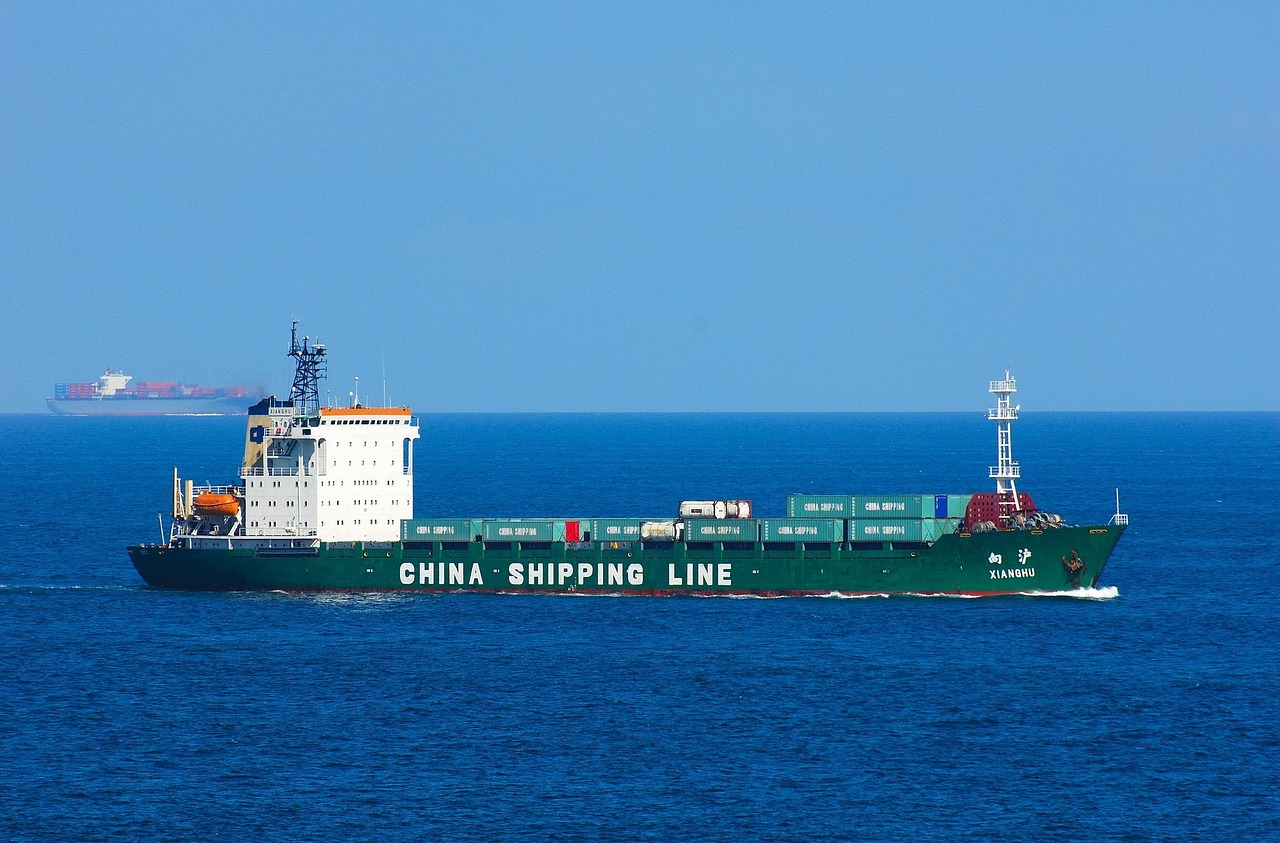FCA Shipping Term 2025: What Shippers and Buyers Need to Know

The FCA shipping term is essential in international trade. Recent updates under FCA incoterms 2025 introduce significant improvements, such as increased flexibility for containerized shipping. These changes streamline delivery and documentation processes. You can now request a Bill of Lading directly from the seller’s carrier, ensuring smoother operations and improved risk management during transactions.
Key Takeaways
FCA shipping rules let buyers pick delivery spots easily.
Buyers can ask for a Bill of Lading from the seller’s carrier. This helps with customs and makes deals clearer.
Good paperwork and clear roles stop confusion and keep shipping smooth.
Understanding FCA and Its Importance

Definition of FCA in International Trade
The FCA (Free Carrier) term, as defined under the Incoterms 2020 rules, outlines the responsibilities of sellers and buyers in international trade. It requires sellers to deliver goods to a named place or load them onto the buyer’s transport. At this point, the risk transfers to the buyer. This definition is essential for understanding how costs and risks are shared in global transactions. With the updates in incoterms 2025, FCA remains one of the most versatile shipping terms, offering clarity and flexibility for both parties.
Key Features of FCA and Its Role in Shipping
FCA stands out among shipping incoterms due to its adaptability. It allows you to choose a delivery point that suits your needs, whether it’s a seller’s warehouse or a port terminal. Sellers handle export clearance, while buyers take responsibility for the main transport and import clearance. This division of tasks ensures smooth operations. FCA is particularly useful for containerized shipping, where precise delivery points are critical. Its clear allocation of responsibilities minimizes disputes and ensures efficient trade processes.
Common Scenarios Where FCA is Used
You’ll often encounter FCA in transactions involving containerized goods. For example, if you’re importing electronics, the seller might deliver the goods to a port terminal, where your carrier takes over. FCA is also common in industries like automotive and machinery, where buyers prefer control over the main transport. This term works well when you want to manage shipping costs and risks while allowing the seller to handle initial logistics.
Key Updates to FCA Shipping Term for 2025

Overview of Changes Compared to Previous Versions
The FCA shipping term has seen notable updates in 2025, enhancing its practicality for modern trade. These changes address key areas for improvement, ensuring better outcomes for both sellers and buyers. The updates focus on:
Improved data quality to support decisions and justify conclusions.
A broader view of the entire distribution chain, ensuring seamless operations.
Clearer processes for reporting and action planning, with defined timelines and responsibilities.
Enhanced consideration for different customer types, including vulnerable groups.
A stronger emphasis on collaboration between all parties involved.
These updates make FCA incoterms more adaptable and reliable, reducing risks and improving efficiency in international trade.
Enhanced Flexibility for Containerized Shipments
The 2025 version of FCA incoterms introduces greater flexibility for containerized shipments, making it easier to manage logistics. For smaller shipments, Less-than-Container Load (LCL) shipping offers cost-effective solutions. It allows you to share container space with other shippers, reducing expenses while maintaining control over your goods. The Container Freight Station-to-Container Freight Station (CFS-CFS) model further supports this by consolidating and deconsolidating shipments at both origin and destination points. This approach accommodates rush orders and last-minute changes, ensuring your shipping needs are met efficiently.
New Option for Buyers to Request a Bill of Lading
One of the key changes in FCA incoterms 2025 is the option for buyers to request a Bill of Lading from the seller’s carrier. This document serves as proof of shipment, providing added security and transparency. It ensures that buyers have the necessary documentation to facilitate customs clearance and other processes. This update simplifies communication between sellers and buyers, reducing misunderstandings and ensuring smoother transactions.
If you need assistance with international logistics, including sea and air freight, YQN Logistics can help. Contact info@yqn.com for expert support.
Tips for Shippers and Buyers
How Shippers Can Adapt to the Changes
Adapting to the updates in FCA incoterms 2025 requires careful planning and proactive measures. As a shipper, you should focus on understanding the new flexibility for containerized shipments. For instance, if you handle Less-than-Container Load (LCL) shipping, you can optimize costs by consolidating goods with other shippers. This approach reduces expenses while maintaining control over your cargo.
You should also familiarize yourself with the option for buyers to request a Bill of Lading from your carrier. This document ensures transparency and smooth customs clearance. To streamline operations, coordinate with your carrier to provide accurate documentation promptly. Clear communication with buyers about delivery points and timelines minimizes misunderstandings and delays.
Tip: Invest in training your logistics team to understand the updated FCA shipping term. This ensures compliance with obligations for sellers and buyers and reduces risks during transactions.
What Buyers Need to Know About FCA 2025
The updates to FCA incoterms bring significant advantages for buyers. You now have the option to request a Bill of Lading directly from the seller’s carrier. This document acts as proof of shipment, simplifying customs clearance and ensuring smoother transactions. To leverage this benefit, communicate your requirements clearly to the seller.
Understanding the flexibility for containerized shipments is equally important. If you manage smaller shipments, consider using the Container Freight Station-to-Container Freight Station (CFS-CFS) model. This method accommodates rush orders and last-minute changes, ensuring your shipping needs are met efficiently.
Key events in 2024 and 2025 highlight the importance of staying informed about regulatory changes. For example:
Date | Event Description |
|---|---|
May 31, 2024 | Anti-greenwashing rule and guidance come into force. |
July 31, 2024 | Firms can begin to use labels, including a new 'Sustainability Mixed Goals' label. |
December 2, 2024 | Naming and marketing rules come into force with accompanying disclosures. |
December 2, 2025 | Ongoing product-level and entity-level disclosures for firms with AUM > £50 billion. |
These developments emphasize the need for buyers to align their operations with evolving standards.
Practical Tips for Using FCA Effectively
Using FCA shipping terms effectively requires a strategic approach. Start by selecting delivery points that align with your logistics needs. For example, if you prefer control over the main transport, choose a port terminal as the delivery point. This ensures smooth transitions between sellers and buyers.
Accurate documentation is crucial. Ensure that all paperwork, including export clearance and the Bill of Lading, is completed correctly. This reduces delays and avoids penalties during customs clearance. Collaborate closely with your carrier and seller to maintain transparency throughout the shipping process.
The Factor Criticality Analysis (FCA) model offers valuable insights for optimizing trade operations. By assessing the significance of each feature in relation to the overall effectiveness index, you can make informed decisions. Comparative analysis with historical data demonstrates the model’s ability to predict effectiveness levels, addressing operational challenges and inaccuracies.
Note: Regularly review your shipping terms and processes to identify areas for improvement. This proactive approach enhances efficiency and minimizes risks.
Common Mistakes to Avoid with FCA
Misunderstanding Delivery Points
Misinterpreting delivery points under FCA can lead to costly errors. You must understand that the seller's responsibility ends once the goods are handed over to the main carrier. This includes covering all costs and risks up to that point. For example:
If the delivery point is a transport facility, the seller must ensure the goods are properly packaged and transported to that location.
If the delivery point is the seller’s factory, the seller must load the goods onto the buyer’s transport.
Failing to clarify the delivery point can result in disputes between buyers and sellers. Always confirm the exact location and responsibilities before finalizing the agreement.
Overlooking Documentation Requirements
Accurate documentation is critical for FCA shipments. Missing or incorrect paperwork can delay customs clearance and disrupt the supply chain. Firms must demonstrate good governance by ensuring all documents are accurate, timely, and relevant. This includes export clearance and, if requested, the Bill of Lading.
The FCA incoterms emphasize the importance of gathering and analyzing appropriate data to ensure compliance. Neglecting this step can lead to penalties or shipment delays. You should double-check all documentation before shipping to avoid these issues.
Failing to Communicate Responsibilities Clearly
Clear communication between buyers and sellers is essential for smooth transactions under FCA. Misunderstandings about who handles specific tasks, such as export clearance or transport arrangements, can create confusion.
To avoid this, outline each party’s responsibilities in detail. For instance, specify whether the seller will load the goods or simply make them available for pick-up. Regular updates and open communication channels help prevent errors and ensure both parties meet their obligations.
Tip: Use written agreements to document responsibilities. This minimizes disputes and ensures accountability.
The FCA shipping terms for 2025 improve international commercial terms by offering more flexibility and clarity. These updates benefit both buyers and sellers by simplifying delivery terms and reducing risks. Understanding the responsibilities of buyers and sellers ensures smoother shipping operations. For expert guidance on these terms, contact info@yqn.com.
FAQ
What does "free carrier" mean in shipping terms?
It means the seller delivers goods to a specified location, transferring risk and responsibility to you once the carrier takes possession.
Can you request a Bill of Lading under FCA 2025?
Yes, you can request a Bill of Lading from the seller’s carrier. This document provides proof of shipment and simplifies customs clearance.
How does FCA benefit containerized shipments?
FCA offers flexibility for containerized shipments. You can choose delivery points like ports or freight stations, ensuring efficient logistics and cost control.
See Also
Essential Strategies for Understanding Incoterms in 2025
Understanding SCAC Codes: A Guide for All Shippers
2024 Shipping Industry Trends: Insights and Future Projections

Shipping with YQN - Global Logistics at Your Fingertips
YQN has established subsidiaries worldwide, covering North America, Latin America, Southeast Asia, and the Middle East. We have partnered with 300+ top shipping and airline companies and have access to 3500+ high-quality supplier resources. YQN also has a professional customer service and fulfillment team of over 500 people to provide more worry-free and efficient international logistics services.
Contact Us
You can also email us at info@yqn.com.

